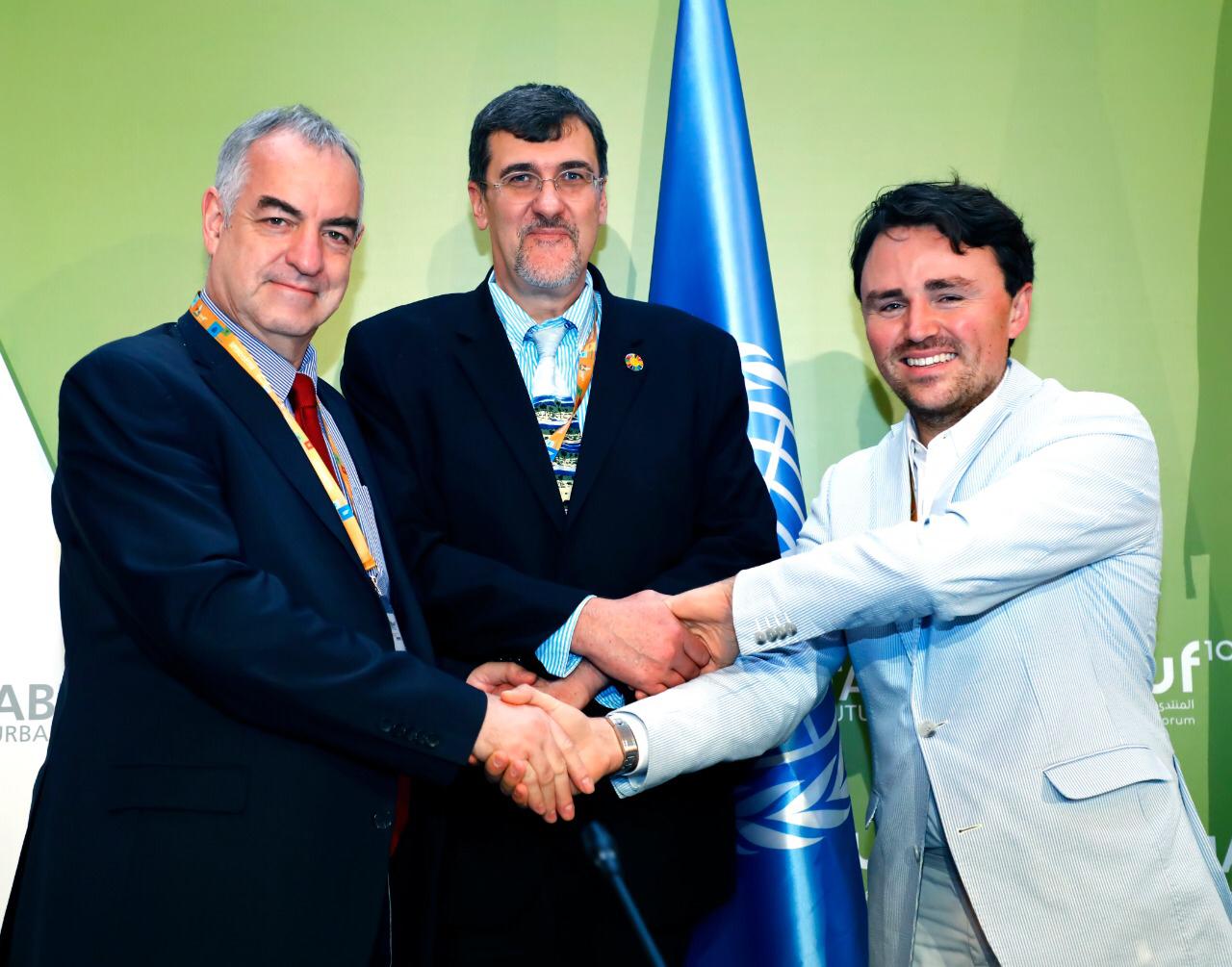9th February, Abu Dhabi - As part of Waste Wise Cities Campaign, UN-Habitat is delighted to announce an agreement with WWF-International to tackle global challenge of waste management in cities and plastic pollution.
Inadequate waste management in cities is one of the main sources of up to 80% of marine litter. In the current rapidly urbanizing world, 2 billion people do not have access to basic waste collection services and 3 billion people globally do not have access to controlled waste disposal. The global scale of urbanization and economic growth are creating a potential “TIME-BOMB” regarding waste we generate in the world’s cities. If not addressed now, the significant negative impact on human health and the environment will be felt. Solid Waste Management is now a global issue that everyone should care about: poor solid waste collection and uncontrolled disposal are polluting air, soil and water, threatening our health; the growing amount of waste generated in cities daily is accounting for a large portion of local governments’ budgets; unmanaged waste from our society is creating marine litter pollution menacing our oceans’ ecosystems. However, if properly managed, our waste is a great opportunity. Resource recovery from the waste stream reduces consumption of natural resources, which are already depleting. New circular economy business models create jobs and enhance income for the urban poor. An improved urban environment and quality of life create investment opportunities for sustainable urban development.
Waste Wise Cities Campaign
In 2018, UN-Habitat, launched “Waste Wise Cities Campaign” with a call to address the global challenge of waste management, and encourage cities in the world to be WASTE WISE: a city that uses our precious resources wisely through rethinking, refusing, reducing, reusing and recycling its materials and waste before as well as after consumption. More than 150 cities have signed up to the campaign, among them more than 50 cities are committed to the Waste Wise Cities Challenge to clean their cities by 2022.

WWF Plastic Smart Cities
Plastic Smart Cities is a WWF initiative, bringing together cities and tourism destinations to commit to fight plastic pollution. In just the last 12 months WWF has fundraised $40M USD to work on circular economy projects in cities in China, Thailand, Vietnam, Indonesia and the Philippines. Currently approximately 20 cities from around the world, including Donsol, Amsterdam, Oslo, Nice and Izmir, have committed to becoming Plastic Smart with the objective of No Plastic in Nature by 2030, to create a tangible action plan, to assign a pilot area within their city and sharing best practices on the platform.
Vincent Kneefel, Global Cities Lead for WWF’s No Plastic in Nature initiative:
''With eight million metric tons of plastic entering our oceans each year, mismanaged plastic waste is profoundly threatening people and the environment, especially rivers and oceans. We are proud to partner with UN Habitat and to launch the Plastic Smart Cities best practices platform today. We are confident that through this initiative, together we can create a global movement of cities taking action to tackle plastic pollution and stop leakage of plastic into nature. Plastic Smart Cities and Waste Wise Cities campaigns will strengthen action when it comes to preventing, measuring, and managing waste at a local level. Our goal is to promote best practices around the world and to make sure that smart measures on plastic reduction and waste management are widely shared. With strong commitments from cities, governments and industry, we can end additional plastics in nature and ensure the safety of our communities and the environment.''
UN Habitat representative, Andre Dzikus, Chief, Urban Basic Services Section:
“UN-Habitat welcomes cities such as Bogota, Colombia, the partnership between Bonn, Germany and Cape Coast, Ghana and Dortmund, Germany, Abuja, Nigeria who have committed to the partnership during WUF 10. We continue to welcome cities who shares the same values and aspirations to achieve waste SDGs and NUA.”
For further information: https://unhabitat.org/waste-wise-cities-campaign